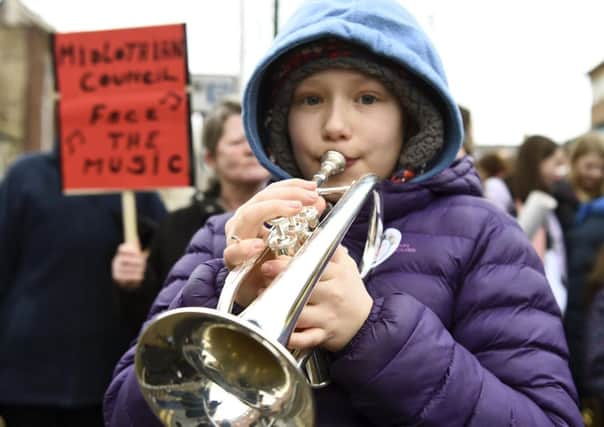Lack of music education ‘is now really hitting poorer children’ in Scotland


The warning from Lucy Noble, artistic and commercial director at the Royal Albert Hall, comes amid a growing anger in Scotland over soaring charges for music tuition and cuts to music teachers.
Youngsters from poorer backgrounds do not have the same opportunities to get involved in music as their better-off peers, she said.
Advertisement
Hide AdAdvertisement
Hide Ad“What is happening is this divide being created between people with the knowledge, and who can afford it, being able to give their children access to music,” she said.
“But for people who don’t have the know-how or can’t afford to pay for private lessons, and the schools aren’t delivering that really important music education, then what hope have they actually got? The opportunities just aren’t there for them at all.”
Asked whether this was widening the gap between the advantaged and the disadvantaged, she said “absolutely” and that diversity is a difficult topic.
Ms Noble added: “People who come from a more challenged background are not going to have the opportunities that the people who are more wealthy and have the opportunities do.”
In Scotland, increases in costs of music tuition have been contentious. In 2018, several councils either introduced or increased fees for instrumental lessons – now topping £500 in some cases. Some have even started charging for the hire of local authority instruments.
The number of music teachers in schools across Scotland has also fallen steadily from 108 at the start of the decade to 62 last year.
Ms Noble said schools need to “step up” to make sure everyone has access to music, but that organisations like the Royal Albert Hall also had a role to play. She said the issues surrounding arts education need to be addressed if gender parity in the industry is to be achieved.
New data released by the Royal Albert Hall indicates the top ten classical composers most recognised by British people are male.
Advertisement
Hide AdAdvertisement
Hide AdMozart and Beethoven (both recognised by 70 per cent) and Bach (60 per cent), topped the list in a survey of 1,000 adults.
In comparison, women composers had significantly lower recognition, with Fanny Mendelssohn, Clara Schumann and Hildegard von Bingen known to just 30, 17 and 7 per cent respectively.
Ms Noble said: “History has left us a legacy of great classical composers – Mozart, Bach and Schubert to name a few.
“But we must make sure that young people are exposed to not just these white, male titans, but women, and that those from minority backgrounds are recognised too.”